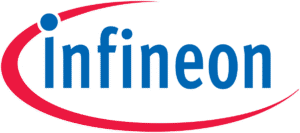
Providing transparency and oversight for family LPA’s.
The new LPA Management Account from Money Carer provides a simple signatory approval process for all LPA’s, ensuring secure oversight and accountability. It features a real-time safeguarding alert system to monitor and flag potential risks, integrated into a dedicated, FSCS-protected bank account. This service is already used by hundreds of Solicitors who act as professional attorneys and has now been made available free of charge for family members who have an LPA for a loved one.
Family members can now benefit from the full account access, oversight and transparency and management seen as best practice by professional LPA managers.


The LPA Account that’s simple to switch to and maintain.
Bringing clarity and transparency to a typically overlooked money management role
Integrates an every day spending account with case management, secure document storage and safeguarding alerts
Easy onboarding process with dedicated support
Optional additional security bond protection

Ensures visibility and clarity
The new LPA Management Account includes a multi-signatory approval process designed for all attorneys, ensuring secure and transparent decision-making.
Account visibility in one platform
All accounts are FSCS protected
Incorporates the Circle of Care management
Enables Attorneys to issue carer shopping cards
Benefit from competitive interest rates through Insignis

Payment Rings – pay with a tap, securely and easily.
Secure and easy transactions with our payment rings. Just a tap, no more forgotten PINs.
Accessibility first – ideal for people who may struggle with cards, PINs, or mobile apps.
Independence restored – encourages older adults, people with disabilities, and others who face difficulty making payments.

Fingerprint Enabled Payment Card
Tokenised biometrics for inclusive and secure payments
Fingerprint authentication replaces the need for PINs, simply touch and pay.
Inclusive – no smartphone, passwords, or PINs required.
Protects against fraud by removing the risk of PIN sharing and abuse, with no card number displayed.
Promotes independence checkout with dignity and confidence.
Request more information
info@moneycarer.org.uk
Why choose our LPA Management Account?
Entry onto the Vulnerability Registration Service database
Adds an extra layer of safeguarding through national vulnerability registration.
Financial Service Compensation Scheme (FSCS) protected
All client funds are safeguarded under the UK’s FSCS protection.
Buil-in welfare benefit check and entitlement calculator
Simplifies the process of verifying and calculating client entitlements.
Store, view and share DWP letters and other documents
Save time and reduce paperwork with easy digital document management.
Prepaid spending cards for loved ones /carers/support workers
Flexible prepaid cards designed for trusted carers and support workers.
Set up automated balance limits on accounts for safeguarding
Safeguard client funds with custom upper and lower balance limits.
Get personalised suspicious payment alerts for fraud monitoring
Personalised alerts help you respond quickly to potential fraud risks.
Open Banking Connectivity to view other accounts
Simplifies money management with real-time account connectivity.
Accounts Charges
Transfer your loved one’s (the Donor’s) everyday bank account to Zempler Bank using the Current Account Switch Service (CASS) to gain full access to the Monika LPA Management Platform — at no cost. The entire switch takes just seven days, with no paperwork or hassle. This trusted model is already used by hundreds of solicitors, local authorities, and care charities who manage their clients’ finances through Monika. All accounts are PRA and FCA-regulated and protected by the Financial Services Compensation Scheme (FSCS).
Request more information
info@moneycarer.org.uk
Trusted to support







Contact us
- info@moneycarer.org.uk
- 0800 083 0626
- The Money Carer Foundation, Vanguard House, Keckwick Lane, Daresbury, Warrington WA4 4AB